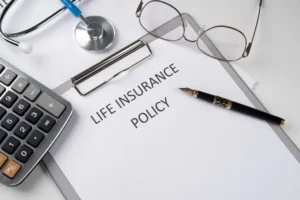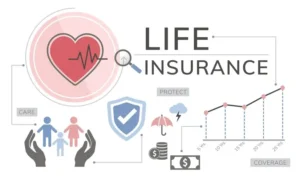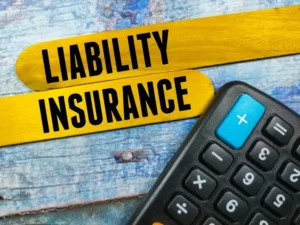Table of Contents
Running a small business comes with its own unique set of challenges and risks. Whether you are a startup or an established small business, the right insurance coverage is integral to protecting your company against events beyond your control small business insurance.
This article will offer an in-depth look at insurance for small businesses: what types of coverage you actually need, how to select the right provider for your needs, and common pitfalls to avoid
The fact that today’s business climate is fast-paced and often unpredictable demands that small business owners be more proactive with regard to risk management inherent in their businesses. One of the best ways to accomplish this is to purchase proper insurance tailored to your particular Small Business Insurance.
From natural disasters to litigation, the right insurance provides a safety net that can let you focus your energy on growing and innovating, instead of constantly protecting your backside. This guide will walk you through the essential elements in small business insurance to assist in making informed decisions that will protect your business and give you peace of mind.
In the dynamic world of small businesses, understanding all the intricacies of insurance is paramount. Being a small business owner means that you’re exposed to a wide array of potential risks that can wipe out your hard-earned success small Business Insurance. Proper insurance coverage-from natural catastrophes to unexpected legal issues-provides one with that very valuable safety net with which such eventualities could be confidently dealt.
This guide aims to help explain the world of small business insurance in detail and provide you with some real, actionable information on what types of coverage you need, how to find the best provider, and how to avoid common mistakes. In doing so, you will be well on your way to making sure your business is protected and set up for long-term growth and innovation.
Small Business Insurance: The Basics

Small business insurance is a collection of various types of insurance policies in order to protect your business from a wide array of risks small business insurance . These may range from property damage, legal liability, employee-related risks, and many others.
Understanding the ins and outs of small business insurance will allow you to make proper choices about what type of coverage will safeguard your venture.
The first thing to understand about small business insurance is that it is not a generic product, but rather a customized portfolio of policies and coverages aimed at various risks. Policies can involve general liability and property insurance, workers’ compensation, and professional liability insurance.
All these various kinds of insurance cover certain vulnerabilities that your business may be exposed to, whether it is damage to physical property, liability from third-party claims, or employee-related incidents. The clearer the basics, the more precisely you can analyze your business’s needs and make sure you have proper protection to cover assets and operations.
Key Types of Coverage Every Small Business Needs
- General Liability Insurance: This covers legal issues resulting from accidents, injuries, and also claims of negligence.
- Property Insurance: This will protect your business property against fire, theft, and also other risks.
- Workers’ Compensation Insurance: If you have employees, this is critical, which will pay for medical treatment and lost wages when injury or illness occurs related to work.
- Professional Liability Insurance: Also known as Errors and Omissions, or E&O, this is an insurance policy that will cover claims of negligence or poor work.
In addition to these key coverages, one more insurance to consider is Business Interruption Insurance. This insurance provides coverage in the event of a disaster prohibiting an individual’s business from operating normally and subsequently losing revenue.
It can cover continuing expenses such as rent, utilities, and payroll during the time period that your business cannot operate. Business Interruption Insurance would be a much-needed lifeline to such small businesses that require immediate financial sustenance to tide over those hard times and get back into the fray as soon as possible small business insurance. Add this to your roster of insurance, and you will be covered against financial losses due to sudden interruptions so that when disaster strikes, stability would not be disrupted.
How to Get the Right Insurer
Comparing several insurance providers will give you the best rates and coverage options. Look for highly-rated providers based on customer reviews and financial stability. It’s also a plus to find an agent who understands the needs unique to your industry.
Seek the professional advice of an insurance broker or agent who can assist your business in determining what insurance coverage best suits it. Choosing the right insurance carrier is one of the most important steps toward securing your small business’s future.
Research extensively and compare a number of providers to find the best rate and coverage for your particular needs. Look for good customer reviews and a history of financial stability since these are indicative of a trustworthy and reliable provider.
It will also be all the better to choose one experienced and proficient in your line of business, for this automatically means that he is apt to become more attuned with the peculiar risks and needs that might come upon your small business insurance. Likewise, consultations with an insurance broker or agent will prove helpful by offering insights and personalized advice on how to go through the complexities of policies and assure that you make an informed decision which would provide maximum protection for your business.
Common Insurance Pitfalls and How to Avoid Them
Underinsuring Your Business: Make sure the coverage limits taken up are adequate to cover the potential losses. Not Reading the Fine Print: Know what is excluded and what is covered under the policy.
Not updating your coverage: Reviews of the insurance policies that your business carry should be done on a regular basis and updated to reflect the changes within the business. Probably the most common mistake made in the insurance of small business insurance is under-insuring, which leaves them open to huge financial losses.
To avoid this, make sure your coverage limits are enough to pay for potential risks and losses that might affect your business. Another common mistake that people commit is that of not reading the fine print on their insurance policy. One should religiously go through it to understand what is included and what is excluded, so that at the time of claim settlement, there are no nasty surprises.
Second, failure to revise your coverage to conform with changes in your business will also cause lapses in protection. Periodically review your coverage and make appropriate changes in your insurance policies as changes in your operation-such as expansion, new services, or increased inventory-take place so protection can be complete. If you are both proactive and diligent, you will avoid these common mistakes and get the right kind of protection for your business.
Staying Current with Your Insurance Needs
As your business grows, so do your insurance needs. Periodically review your insurance coverage to make certain it reflects your current business activity. Keep up to date with changes in insurance laws and regulations that may impact your coverage needs.
As your business grows, so do your needs. Periodically review coverage to ensure it matches what you do today. Keep up to date with changing laws and regulations that may affect the type of insurance you need to carry small business insurance.
Thirdly, you may wish to consider less frequent reviews, such as annual reviews, with your insurance provider or broker for possible gaps in your policies that need adjusting. This will keep you at the edge in coverage so that your business remains strong and prepared for whatever new risks or challenges come along. By being continuously relevant to your insurance needs, you will surely be cast forward in driving your business with confidence and stability.
The Role of Liability Insurance in Protecting Your Business

Liability insurance is crucial for your business in claims of negligence, injury, as well as damage to property. It covers legal fees, settlements, and medical expenses so that a single lawsuit does not bring your entire business to the ground.
There are many forms of liability insurance, including general liability, professional liability, and product liability, among others. Each has a different purpose in covering risks. Liability insurance is important to your business because it protects it against claims of negligence, injury, and property damage.
It also pays the litigation-related costs, settlements, and medical bills so that your business is not ruined by a single lawsuit. There are different forms of liability insurance, including general liability, professional liability, and product liability, serving for specific risks.
General liability covers most general risks, including bodily injuries and property damages, while professional liability insurance, more commonly called E&O, protects against claims for professional services and advice. Product liability insurance serves to protect your business from defects in your products small business insurance. With comprehensive liability insurance, you can save your business from complete financial ruin and concentrate your efforts on growth and innovation.
The Importance of Business Interruption Insurance to Small Businesses
Business interruption insurance covers the loss of income that a business suffers in the wake of disasters. It may help pay operating expenses such as payroll, rent, and utilities while the period that the business cannot operate is covered.
For smaller businesses, this may be the insurance that sees them through until they are able to recover. Business interruption insurance covers a business for income lost because of the disaster.
It can help pay operational expenses while the business is not in operation, such as employees’ salaries, rent, and utilities. The coverage is important to small businesses as it provides them with the necessary financial resources in difficult times and enables the process of recoupment faster.
Conclusion
It may be complex to navigate small business insurance, but it is an extremely important factor to consider in protecting your business. Understanding the various forms of cover, getting the right provider, and keeping yourself updated on your needs for insurance will be the foundation of your business being as covered as possible.
You will be confident in the success of your business with the right investment in insurance policies. The processing might be complicated; nevertheless, small business insurance encompasses very important features in the protection of an organization.
Therefore, understanding the types of coverage, the right provider, and keeping updated insurance needs is all important to keep your business well-protected small business insurance. The time used to secure the right insurance policies gives you time to focus on the growth of your business with confidence and peace of mind.
FAQ
Q: What is the most important kind of insurance for a small business? A: The general liability insurance is most important since most cases involving bodily injury and property damages come under this class.
Q: How much does small business insurance cost? A: It can range from very cheap to very expensive, depending on the type of coverage, the size of the business, and even the industry. You should shop around with several providers to obtain the best rate.
Q: Can I package various insurance policies together? A: Yes, many insurance providers offer business owner’s policies commonly referred to as BOPs that bundle multiple types of insurance into one package, often at a lower cost.









